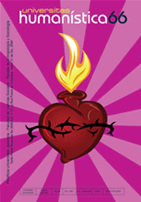Abstract
In this article I will demonstrate how in the fields of history and social sciences, event, narrative and the political have been reconfigured since the 1980s. First, I show the moment of the initial shock, that historical experience that produces the trauma of the victim. This desctructuralizing experience produces an emotional texture associated to the intense suffering and the social fragmentation. Second, I highlight the various
moments of narrative construction of the event, from the initial intent of assimilating its meaning to the later compulsive repetitions. Narrative – from the testimony of victims, passing through the news media and international agencies, to academic history – will be the modality of discourse that will try to assign coherence and meaning to traumatic experiences. Third and last, I am interested in emphasizing the compulsive condition of repetition; the enigmatic insistence that structures the field of possible actions and available answers to the collectives that offer keys to the processes of group identification and rejection, the force of memories, their silencing and complaints: the political plot. Although analytically they have been susceptible to independent analysis, these three records coexist, and their current place in contemporary social theory suggests that they form part of a plot that should be looked at as a whole. In this text I will again present some of the debates around these three concepts, and later illustrate the ways in which these debates inform the theoretical discussions around the field of convergence, which we shall call studies about or around social trauma.

This journal provides immediate open access to its content on the principle that making research freely available to the public, encourages greater global exchange of knowledge.
The journal Universitas Humanística is registered under a Creative Commons Attribution 4.0 International Public License. Thus, this work may be reproduced, distributed, and publicly shared in digital format, as long as the names of the authors and Pontificia Universidad Javeriana are acknowledged. Others are allowed to quote, adapt, transform, auto-archive, republish, and create based on this material, for any purpose (even commercial ones), provided the authorship is duly acknowledged, a link to the original work is provided, and it is specified if changes have been made. Pontificia Universidad Javeriana does not hold the rights of published works and the authors are solely responsible for the contents of their works; they keep the moral, intellectual, privacy, and publicity rights.
Approving the intervention of the work (review, copy-editing, translation, layout) and the following outreach, are granted through an use license and not through an assignment of rights. This means the journal and Pontificia Universidad Javeriana cannot be held responsible for any ethical malpractice by the authors. As a consequence of the protection granted by the use license, the journal is not required to publish recantations or modify information already published, unless the errata stems from the editorial management process. Publishing contents in this journal does not generate royalties for contributors.


